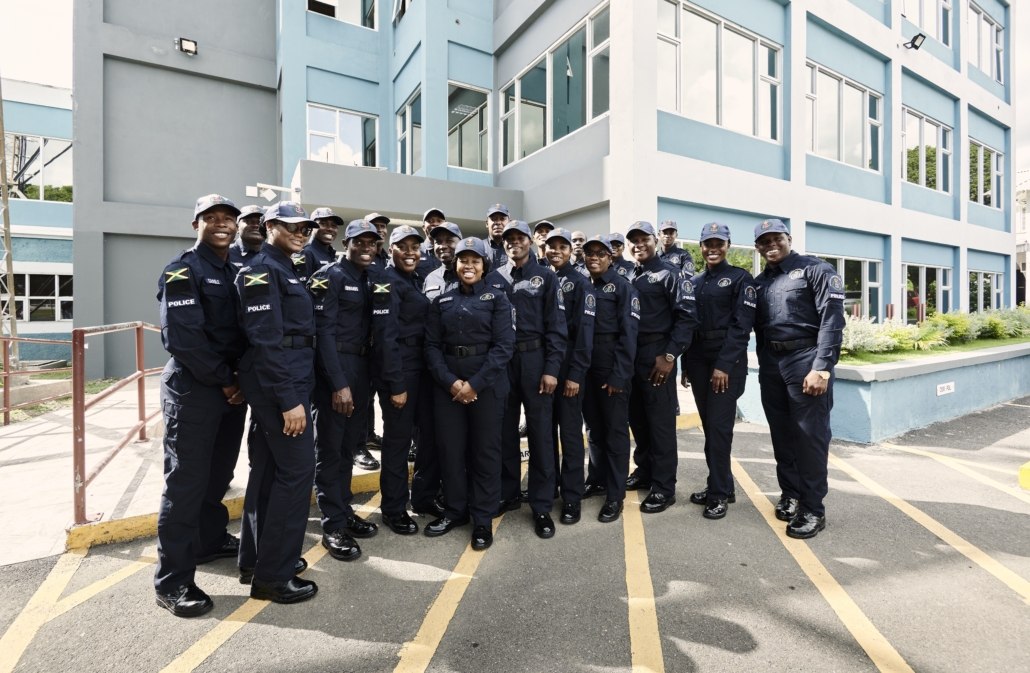 In the wake of unprecedented challenges brought about by the COVID-19 pandemic, the National Police College of Jamaica (NPCJ) has not only weathered the storm but emerged stronger and more adaptive than ever. Police Commissioner Major General Antony Anderson, in his recent address to the college, shed light on the remarkable evolution of NPCJ and its commitment to producing highly skilled and professional police officers.
In the wake of unprecedented challenges brought about by the COVID-19 pandemic, the National Police College of Jamaica (NPCJ) has not only weathered the storm but emerged stronger and more adaptive than ever. Police Commissioner Major General Antony Anderson, in his recent address to the college, shed light on the remarkable evolution of NPCJ and its commitment to producing highly skilled and professional police officers.
Speaking under the theme; “Ten Years of Excellence & Resilience: Embracing Growth, Inspiring and Shaping Futures”, Commissioner Anderson reminisced about the early days of the pandemic when NPCJ had just completed additional training facilities to meet the growing needs of the force. Just as these new facilities were ready for action, the world ground to a halt. “In 2020, around March, training came to a sudden stop, lasting for several months into the following year. It was a challenging period, but challenges also present opportunities,” noted the Commissioner.
The expansion undertaken before the pandemic, although momentarily hindered, played a pivotal role in NPCJ’s ability to adapt. In 2021, during the ongoing pandemic, the college managed to train 700 individuals, surpassing their regular capacity. Commissioner Anderson emphasized the importance of this achievement, given the circumstances, stating, “Having expanded capacity, even with all of the COVID protocols, we could then recruit a much larger number of people.”
However, the Commissioner took the audience on a deeper journey, revisiting the discussions from six years ago when there was a push to move NPCJ away from the Jamaica Constabulary Force (JCF) and establish it as a more academically focused institution under the Ministry of National Security. This proposal aimed to create a security sector college with a broader scope beyond policing.
“I viewed that as complete nonsense,” asserted Commissioner Anderson. He conveyed his belief in the professionalism of policing, emphasizing that the notion of training officers at community colleges and providing short courses wouldn’t suffice. This rejection of the proposed shift highlights the Commissioner’s commitment to a robust and in-depth training process for officers.
The Commissioner argued, “A police officer, being a law enforcement professional, requires comprehensive training. You can’t just run them through a short course and expect them to perform effectively.” Drawing from his own experiences and observations, he pointed out that effective policing is a profession that demands a specific skill set and level of professionalism.
To address the challenges of recruiting and retaining skilled officers, the Commissioner outlined a strategic plan. Recognizing the yearly attrition rate of around 450 officers due to retirement and migration, he set the ambitious goal of training 1,250 officers per year. He stressed the significance of knowing the force’s needs, stating, “You can’t have an end state that says I need to recruit some more people if you don’t even know what that is.”
In the pursuit of this goal, the NPCJ has played a crucial role. The Commissioner praised the college’s team for their commitment and innovative approaches. He explained, “The task was not just to grow the force, but to do so sustainably. The idea was not to accept that the force can grow without bringing in community college. We needed to know how many people we need to train per year to cover attrition and then grow the force at a sustainable rate.”
A pivotal aspect of this transformation has been the focus on maintaining consistent standards across different training establishments. Acknowledging the impossibility of immediately expanding NPCJ to accommodate the increased demand, the Commissioner highlighted the investment in instructor staff to ensure a uniform standard of training across various institutions.
In conclusion, Commissioner Anderson’s address underscored not only the challenges faced by NPCJ but also the resilience and adaptability displayed in overcoming them. The transformative journey of NPCJ, from navigating the uncertainties of the pandemic to redefining the training paradigm, reflects a commitment to excellence and the production of highly skilled and professional police officers ready to serve their communities.







